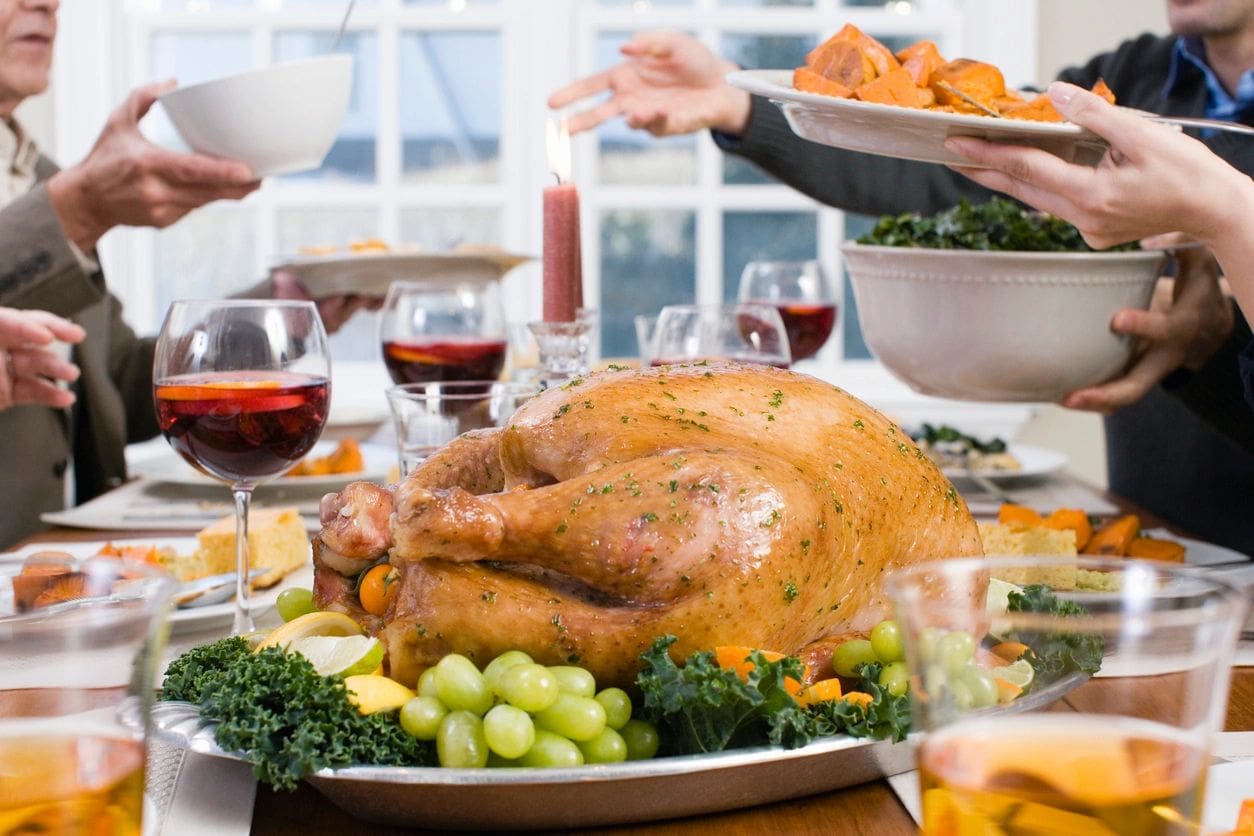Search Posts
Recent Posts
- Real Estate in RI: Seaside waterfront communities are all the rage. Who’s buying – Emilio DiSpirito June 6, 2025
- All About Home Care, with two Rhode Island locations, closing after 22 years in business June 6, 2025
- GriefSPEAK: Angel wings with footprints – Mari Nardolillo Dias June 6, 2025
- Rhode Island Weather for June 6, 2025 – Jack Donnelly June 6, 2025
- Rhode Island Weather for June 5, 2025 – Jack Donnelly June 5, 2025
Categories
Subscribe!
Thanks for subscribing! Please check your email for further instructions.

Talking political turkey during Thanksgiving dinner – Herb Weiss
Talking Political Turkey During Thanksgiving Dinner
By Herb Weiss, contributing writer on aging issues
We face increased demands of family obligations planning for the upcoming Thanksgiving holiday. Baking and cleaning to host dinner, and even unrealistic expectations about our families, or having a dysfunctional family, can produce extra stresses, feelings of anxiety, isolation, and depression.
Especially after this year’s presidential election that continued to polarize the nation, expect more holiday stress caused by political sparring at the dinner table. Heated political conversations over the results of the recent presidential election, even debates over divisive policy issues like abortion, immigration, the economy, and health care can lead to family conflicts and boycotting the traditional holiday celebration.
Just cruise the internet and you will find a popular meme that clearly illustrates the damage that can be caused by the discussion of politics at Thanksgiving or family gatherings. “I just saved a ton of money on Christmas gifts discussing politics during Thanksgiving dinner,” says the meme, noting that it can be explosive at best and fracture family relationships.
Post-Election stress creeping into Thanksgiving
Weeks after the 2024 presidential election, the stress of political disagreements continues to strain family dynamics just in time for Thanksgiving. According to Gray News, a new survey from Raleigh, North Carolina-based Spruce reveals how post-election tension threatens to derail the holiday season, with families feeling emotionally exhausted from political debates.
The Spruce survey looked at 2,000 people across all 50 U.S. states, equally split among men and women. Adults aged 25-65 who regularly celebrate Thanksgiving were surveyed, says the statement announcing its findings.
“Elections stir deep emotions, especially when they tap into our fears and values,” says Tony Spencer, CEO and family relationship expert at Spruce. “Left unmanaged, post-election stress can create rifts that spill over into personal relationships, making Thanksgiving feel like a political battleground. But with a bit of intentional effort, we can shift the focus back to what really matters—family,” he says.
According to Spruce’s recently released survey, 64% of respondents reported that election-related stress is affecting their holiday planning and 59% say they are worried about political disagreements causing tension at their Thanksgiving gatherings.
The survey findings note that 52% admitted to already having arguments with family members about political differences since the election. While 32% are looking forward to discussing politics, 68% of respondents want to avoid politics talk completely this Thanksgiving. Moreover, 49% want to have a total politics conversation ban for all guests and family members.
Boycotting the family dinner is an option for some to reduce family tension. Twenty-three percent are even considering skipping Thanksgiving altogether to avoid family stress.
When the dust settled after the election, supporters of the winning and losing candidates were stressed out. Fifty two percent say President-elect Trump supporting family members are the source of their election and Thanksgiving anxiety, while 48% say VP Kamala Harris supporting family members cause them anxiety. About equal.
Finally, the survey found that 63% plan to set boundaries around political discussions. With the right strategies, families can still preserve the holiday spirit.
Practical strategies to preserve the Holiday spirit
“This year’s holidays may be uncomfortable because so many people either are going to love or hate the election results. It will be hard to ignore the election over Thanksgiving because it is so recent and people still feel so intensely about the results,” said Darrell M. West is a senior fellow in Governance Studies at the Brookings Institution and a former professor at Brown University.
“There should be no gloating or ‘I told you so’ over the holidays” says West, this reducing family antagonism. “Winners should be gracious and understand their gal/guy won and they shouldn’t rub the noses of opponents into the ground. Those on the losing side probably want to avoid detailed discussions of politics,” he says, suggesting that there should be informal ceasefire rules in effect for the holidays with a cessation of hostilities for Thanksgiving.
During her 45-year career as a licensed practicing psychologist in Los Angeles and at State College, Pennsylvania, Elaine Rodino, Ph.D., a fellow and former president of the American of the American Psychological Association’s division of psychologists in independent practice, has had a longstanding interest in the holiday blues and has helped many of her patients cope with this issue over the years.
“It is a challenging year for families who are getting together for holidays who differ politically, says Rodino. Defusing tension can be as simple as asking guests to refrain from talking about politics and/or the election results, says Rodino.
“If you think your guests are going to have a difficult time “refraining” from talking about politics – make it a hard and fast RULE – “I would love for you to come to our dinner, but only if you will promise not to talk about or engage in any conversations about politics,” suggests Rodino.
Rodino warns Thanksgiving Day hosts to be alert during the dinner to conversations and if they hear any that seem to be approaching the forbidden topic intervene immediately and ask them to please stop or redirect the conversation.
Why not make a game or contest to see if people can refrain from talking about politics, says Rodino, or even charge a fine to anyone mentioning politics or the election. Prizes will be given to the winners and the losers will be asked to leave, she adds, noting that everyone would need to agree to these actions before coming. Or, something like that.
Some may even be cancelling their Thanksgiving plans, notes Rodino. “This may not be the year to host/hostess a Thanksgiving gathering of politically different family and friends. Think about taking a weekend trip and skip the festivities this year,” she says.
No right or wrong answers
“If folks would prefer to avoid these topics and all can commit to holding their tongues, that’s perfectly reasonable,” says Todd Schenk, an associate professor and chair of the Urban Affairs and Planning Program at Virginia Tech. “However, many families—like my own—can’t ever seem to avoid politics” he adds, noting that many want to have these conversations both because of their convictions and they want to understand their loved ones. That’s perfectly reasonable too.
“Research strongly suggests that healthy discourse can foster empathy, and thus restore those relationships,” notes Schenk. “Whether its friends, family, neighbors, or beyond, political tension is, at least in part, about differences in values, interests, and priorities on important policy matters. While consensus is rarely easy and not always possible, healthy dialogue can help us to better understand the complexities associated with these issues and seek solutions that are more accommodating to various groups,” he says.
“We often do want to persuade others, which is absolutely understandable. Persuasion is, however, typically a long-term process that requires sustained dialogue; it usually involves gaining a strong understanding of how those you are engaging with feel and, more importantly, why, and then working to find ways in which the position you are seeking to sway them to actually reflects their own values,” adds Schenk.
Finally, Schenk shares the following six tips as to how we can talk to others at the Thanksgiving table who have differing political viewpoints.
1) Start with the explicit acknowledgement that you both/all want to have the conversation in a healthy way. It might sound silly, but, especially if you think it could get heated, it can help to establish some informal ‘ground rules’ up front. These don’t have to be complicated, just things like ‘no interrupting’, ‘no personal attacks’, and ‘describe your own views but don’t make assumptions about others.
2) This is really contextual, but certain times and places may be more or less conducive to healthy conversation than others. For example, you may want to avoid conversations in front of the cousins that you know are going to egg it on, or especially after a few glasses of wine, or in front of young children who may think the whole family is arguing, causing them great anxiety and concern.
3) Aim to speak honestly about your reasons for holding a particular perspective, speaking from your own experience and perspective as much as possible.
4) Be ready to really listen, affirming that you hear what they are saying and asking probing questions (see active listening below).
5) Attempt to understand, rather than just persuade.
6) Remember that body language is important too.
In Conclusion…
Schenk quips, if all else fails, put plastic on the furniture and buckle up. ”In all seriousness, humor and charitableness can go a long way – I think it behooves us all to remember the bonds we have with those around the table with us and to start from that place,” he says.
___
To read more articles by Herb Weiss, go to: https://rinewstoday.com/herb-weiss/

Herb Weiss, LRI -12, is a Pawtucket-based writer who has covered aging, health care and medical issues for over 43 years. To purchase his books, Taking Charge: Collected Stories on Aging Boldly and a sequel, compiling weekly published articles, go to herbweiss.com.

